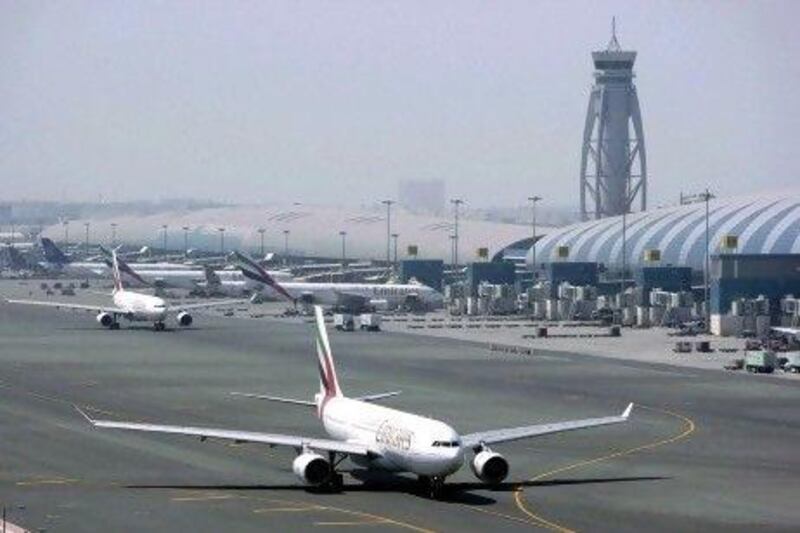Gulf airlines are taking centre stage in a high-stakes game between Airbus and Boeing to develop the latest long-haul jet.
The two aerospace companies are retooling their wide-body aircraft, the Airbus A350 and Boeing 777, with an eye to the Middle East market and big-spending Gulf carriers such as Emirates Airline, Qatar Airways and Etihad Airways.
Both manufacturers are hoping to fine-tune their aircraft to be able to carry about 400 passengers, plus full loads of cargo on flights of more than 16 hours - an increasingly important requirement for Gulf carriers connecting Asia, Europe and the Americas via their hubs. These airlines have more than US$100 billion (Dh367.8bn) worth of aircraft on order to drive growth plans over the next decade and are expected to buy more jets in the coming years.
"There is keen interest on the part of Emirates and other carriers in the region as to where we are headed with the future development of the 777," said Marty Bentrott, the regional vice president of sales at Boeing.
The US aircraft manufacturer is weighing plans either to enhance its 777 jet with minor changes or replace it with a new design. Either option is likely to require years of costly development as Boeing seeks to protect its market share from its French competitor Airbus, which is developing the A350-1000 as a rival to the 777-300ER, or "extended range".
Middle East airlines are the biggest buyers of the 777, with 80 planes due for delivery to the region between this year and 2013. This represents 30 per cent of total deliveries over this period for the jets, which cost about $250 million each.
Emirates, the biggest aircraft buyer in the Middle East, is pushing Boeing to focus company resources on its 777 programme. The Dubai airline is considering another order this year for long-haul jets, on top of the 200 jets it has already ordered from Boeing and Airbus. The existing orders total more than $60bn at list prices.
"I told [the Boeing chief executive] Jim Albaugh to put your boys back on the 777 programme, please. We need that one sorted out sooner," said Tim Clark, the president of Emirates.
The airline is planning to decide by the Dubai Airshow in November whether to purchase more 777s and A350s in a deal that would be likely to top $1bn.
Airbus is developing the A350-1000 as a competitor to the Boeing 777-300ER with entry into service about 2015. It has 75 orders for the jet, 65 of them from Etihad, Emirates and Qatar Airways.
But airlines and leasing companies have cast doubt on the Airbus programme's competitiveness, leading the European manufacturer to consider making significant revisions to the design.
"Some say [the A350-1000] needs to take on more weight and thrust, and I believe that to be the case," said Mr Clark. "It is still not a 777-300ER replacement, but it is a very good airplane."
Similarly, Qatar Airways, with about 200 jets on order, would like to see the A350-1000 with "increased take-off weight and increased range", said its chief executive, Akbar al Baker.
In response, Airbus officials are promising to confirm at the Paris Air Show their plans to significantly redesign the A350-1000, including engine and wing design changes, and weight changes to boost payload range, according to Flight Global magazine.
Boeing may decide to wait and evaluate Airbus's next move before devoting more resources to the 777-300ER programme, said Mr Bentrott. "There is still a lot of question about the A350-1000 in terms of how competitive it will be. So maybe it makes more sense to wait until you have some clarity."





